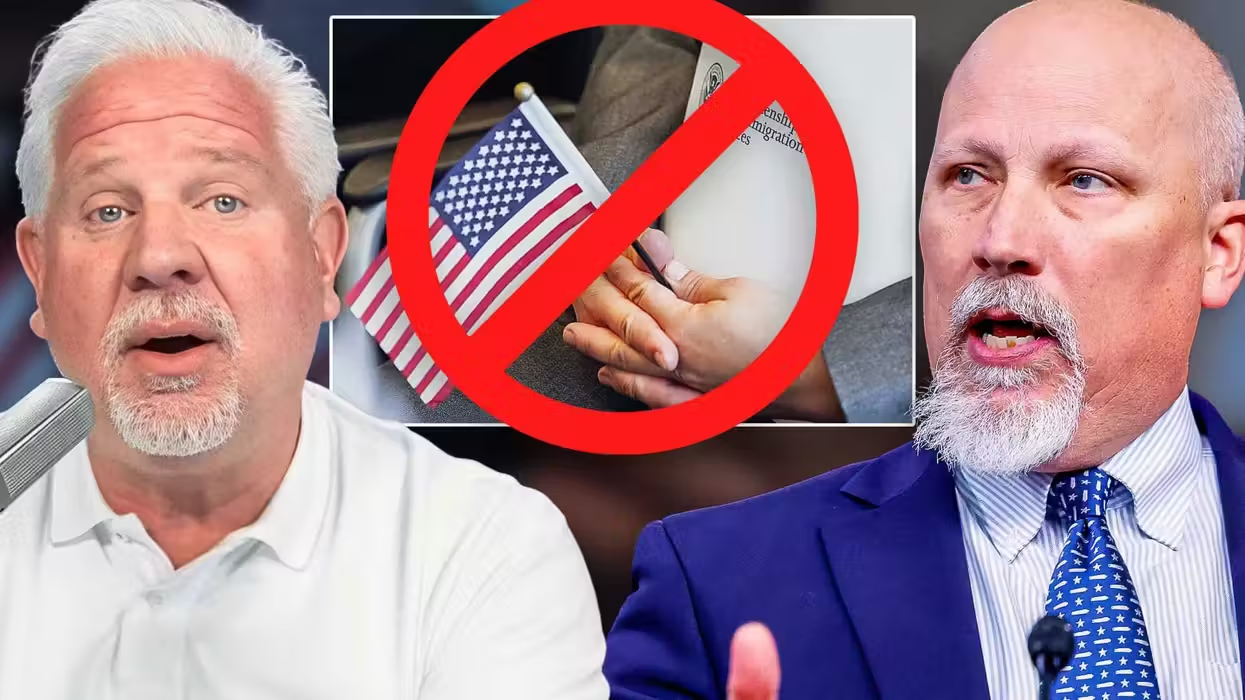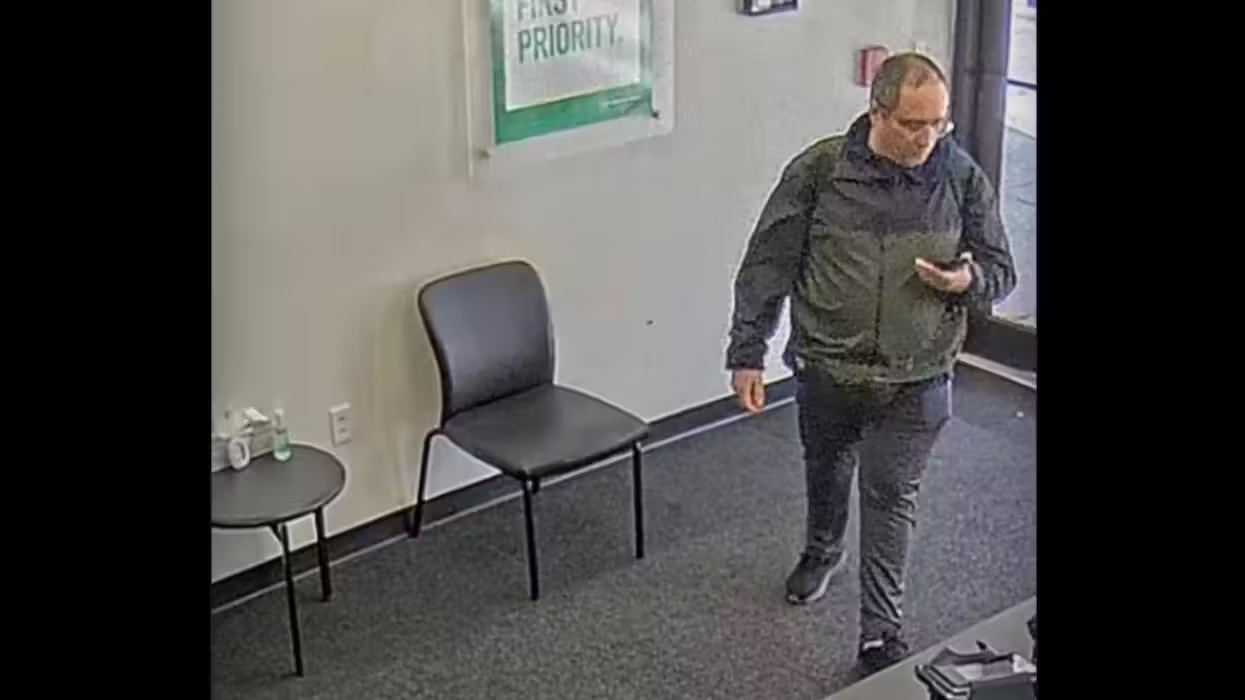© 2025 Blaze Media LLC. All rights reserved.
"This violence along our border and near our shores poses a direct threat to our national security and destabilizes our region."
Members of the House this week will take the first step toward re-evaluating America's war on drugs in Latin America, just days after disturbing new reports that Mexican drug cartels are making threats of violence against U.S. law enforcement personnel.
Last week, a billboard in El Paso was vandalized to say "silver or lead," an apparent warning to U.S. law enforcement that they need to accept bribes from the cartel or risk being killed.
 An El Paso, Texas police officer checks a makeshift mannequin Thursday, May 22, 2014, which was left hanging on a billboard along with the message, “silver or lead” in Spanish, a threat heard in Mexico signifying pay up or get shot. (AP Photo/El Paso Times, Victor Calzada)
An El Paso, Texas police officer checks a makeshift mannequin Thursday, May 22, 2014, which was left hanging on a billboard along with the message, “silver or lead” in Spanish, a threat heard in Mexico signifying pay up or get shot. (AP Photo/El Paso Times, Victor Calzada)
Later this week, a subcommittee of the House Foreign Affairs Committee will meet to consider legislation that would force the government to assess progress in the drug war. The bill would create a commission that would be tasked with reporting to Congress on better ways to reduce the supply of drugs, reduce drug trafficking, and reduce drug-related violence.
The bipartisan bill is co-sponsored by Matt Salmon, who said earlier this month that he hopes the bill leads to recommendations that help reduce violence along the U.S.-Mexico border.
"This violence along our border and near our shores poses a direct threat to our national security and destabilizes our region," he said. "With billions of dollars spent on efforts to deter and dismantle narcotics trafficking in Latin America and the Caribbean with mixed success, it is time to reevaluate our policies and programs."
The bill's chief sponsor, Rep. Eliot Engel (D-N.Y.), said the U.S. has spent almost $16 billion on counter-narcotics programs in Latin American and the Caribbean since 1980. He said Congress needs a fresh look at what's working, and what's not.
"We need to make sure we're getting the best bang for our buck," he said.
The bill would create a Western Hemisphere Drug Policy Commission, which would have a year to make recommendations to Congress on new strategies needed to fight drug trafficking.
Unlike many other commissions created by Congress, this one would not be allowed to have members of Congress, or federal, state and local officials fill any of the 10 commissioner slots. Commissioners would, however, be chosen by House and Senate leaders and President Barack Obama.
The bill finds that in 2012, there were an estimated 23.9 million users of illegal drugs in the United States. It finds that most of the cocaine used by the roughly 1.6 million cocaine users in the United States comes from South America, and that most of the heroin comes from Colombia and Mexico.
Want to leave a tip?
We answer to you. Help keep our content free of advertisers and big tech censorship by leaving a tip today.
Want to join the conversation?
Already a subscriber?
more stories
Sign up for the Blaze newsletter
By signing up, you agree to our Privacy Policy and Terms of Use, and agree to receive content that may sometimes include advertisements. You may opt out at any time.
Related Content
© 2025 Blaze Media LLC. All rights reserved.
Get the stories that matter most delivered directly to your inbox.
By signing up, you agree to our Privacy Policy and Terms of Use, and agree to receive content that may sometimes include advertisements. You may opt out at any time.






